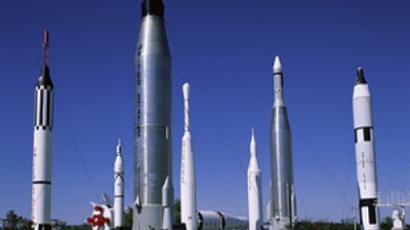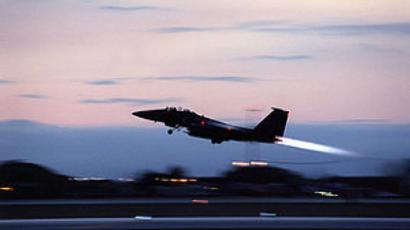ROAR: “Wise Men” of EU, NATO to heed Russia’s views

Two groups of leading world experts, one from the European Union, and another from NATO, have simultaneously arrived in Moscow.
Russian President Dmitry Medvedev on February 9 met with head of EU Group of Wise Persons Felipe Gonzalez to discuss relations between Moscow and the EU, including a European security treaty and a visa-free travel regime for Russian citizens.
The two parties also discussed economic problems in coordination with Russia’s economic development strategy until 2020 and the EU development strategy for 2010-2020.
The 12-strong group of wise persons is an independent research team that considers socio-economic development and security. It was created on an initiative from French President Nicolas Sarkozy in 2007.
Russia’s cooperation with Europe is developing quickly now, but problems may emerge in 2013-2014, believes Vladislav Inozemtsev, director of the Center for Research of Post-Industrial Society. A number of new standards will become effective by that time and they may ban exports of the majority of products of Russia’s metal industry, he told Actualcomment.ru website.
Another problem is improving the investment climate in Russia to attract European companies, Inozemtsev believes. For this, a number of European economic laws could be applied in Russia, including “the demands of the European antimonopoly legislation and European guarantees for investment,” he said. However, Russia is not going to do it so far, he added.
Problems in political and cultural cooperation between Russia and the EU still remain, the analyst said. Spain, which is now presiding in the EU, has said it wants to advance relations with Russia, for example, in issues related to visa-free travel, the analyst noted.
“But this problem is decided not in Brussels or Madrid, but in the EU, in the Schengen zone, Inozemtsev noted. “Even if Spain includes the visa issue in the agenda, it will be rejected thanks to the EU procedures,” he said. “So I would not harbor any illusions in this regard,” he added.
Another team of wise men that arrived in Russia represents NATO and is headed by former US Secretary of State Madeleine Albright. For the first time in history, the group will discuss a new NATO strategy with Russian officials in what is seen as strengthening cooperation between Russia and the alliance.
Despite the fact that ties have improved recently, NATO is described as one of the most serious threats in the new Russian military doctrine. The “wise men” should help draft a new NATO’s mission statement. The current one was written in 1999.
Speaking at the Munich Security Conference on February 7, Albright recognized that “NATO was an alliance against the Soviet Union,” but stressed that now it is a new alliance and Russia should not fear its expansion.
The delegation that came to Moscow is comprised of 12 high-ranking world politicians. They are free to choose any country to visit and any people to meet, Rossiyskaya Gazeta daily said. In Russia, they will meet the Russian Foreign Minister Sergey Lavrov and Secretary of the Security Council Nikolay Patrushev, as well as deputies of the State Duma, experts and even students.
On the eve of the wise men’s visit, Russian envoy in NATO Dmitry Rogozin said it was important to understand whether the group had “a real influence” on developing NATO’s new strategic conception or “it is just part of PR plan,” the daily said.
Moscow hopes that the future NATO strategy “at least will not contradict” Russia’s military doctrine, Vzglyad.ru online newspaper said. The alliance’s leadership has said the doctrine “does not reflect realities,” it added. Russia recommended that NATO officials read the document more closely, the paper noted.Simultaneously, the Russian leadership is trying to persuade NATO to reconsider its attitude to the conception of European security, as proposed by Moscow. However, the leadership of the bloc, following the USA, believes that there is no need “to create something new to ensure regional security in Europe,” Vzglyad said. It is enough, the alliance believes, “to modernize the existing architecture,” and invite Russia and China to participate in it, the paper added.
Although Europe is now the most stable region and its countries are members of the European Union and NATO, they constantly express concern over security, said Nadezhda Arbatova, analyst of the Institute of World Economy and International Relations. It is difficult to understand, “because Russia demonstrates its intention to cooperate with the West,” she told Actualcomment.ru website.
“Russian proposals on the European Security have been taken skeptically,” the analyst said. “But they should be considered as an appeal to the countries of the Euro-Atlantic region to finish the work that had not been done after the end of the Cold War, without destroying the existing structure of European security,” she added.
The West has understood that “Russia is a serious player, and the number of instruments may influence its policy is limited,” said Tatyana Parkhalina, the director of the Center for European Security. “It is difficult to solve the problems of security without Russia,” Parkhalina told Vremya Novostey daily. Russia and NATO have already declared their intention to heed to each other while developing strategic documents, she stressed.
However, the dialogue between the wise men and officials and analysts in Moscow may influence the assessments of Russia that will be included in the alliance’s strategy, believes Maksim Minaev of the Center for Political Conjuncture. Despite the fact that the group has predominantly consultative functions, it is directly involved in the development of the new strategy, he noted.
The new strategic conception will define NATO’s tasks for the coming decade and determine the means to fulfill them. It will reflect such new threats as possible crises related to the global warming, problems with energy supplies, cyber attacks and piracy, Krasnaya Zvezda newspaper said. The development of the strategy is expected to be the most transparent in the alliance’s history.
The current conception of the alliance is now considered obsolete despite the fact that it has aggregated NATO’s experience gained in the Balkan wars and already envisions the possibility of conducting military operations outside the traditional zone of NATO’s responsibility.
The “global character” of the Western alliance may be stated in its new mission statement, the paper said, adding that this explains why Russia considers NATO as one of the main threats.
Of course, NATO is not Russia’s enemy, and Moscow is cooperating with the alliance, the paper noted. “But biased tasks of the alliance do not conform to the principles of ensuring global security,” it said. “If they are not changed, then dividing lines and confrontation will emerge in such spheres as cyber and energy security, as well as fighting climate change.”
“In this regard, the visit of NATO’s Wise Men to Russia is very important,” the paper said. They may try “to combine incompatible things – to make closer Russia’s and NATO’s approaches in the sphere of European security,” it said.
Sergey Borisov, RT














